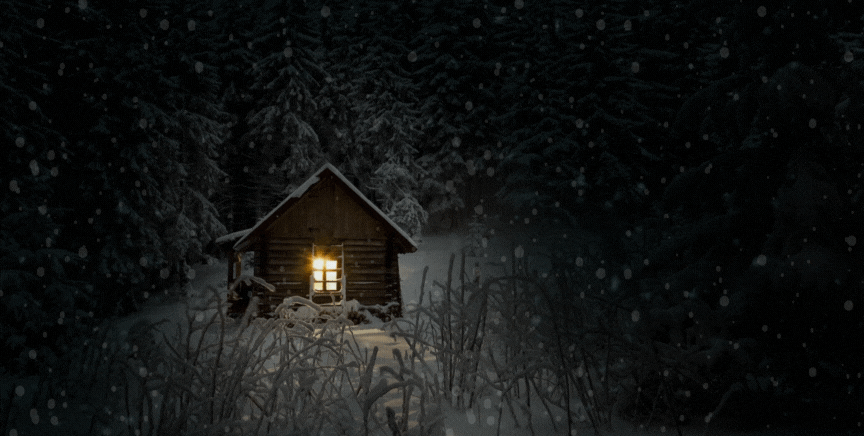Insight into the Past, Present and Future
The Awakening of Ebenezer Scrooge
There are two different paths in Buddhism. One is aimed at acquiring mental discipline and the other at realizing insight. In the West, we tend to focus on the former since it seems to more closely resemble Christian practices. But we can also find an example of the path of insight within the literary works of Charles Dickens – it is the story of Ebenezer Scrooge.
Certainly, acquiring mental discipline and realizing insight are related to one another. Ideally, we really need to do both. It is difficult to realize insight into things “just as they are” if we are often irrational and emotional. It is also difficult to behave properly if our views are distorted and deluded. But doing both is difficult. Each path takes a lot of effort. Historically, Buddhists have had to specialize by choosing one of these two approaches in order to realize success. Sometimes we make this choice and sometimes it is made for us.
Monastic Buddhist schools tended to emphasize the path of discipline. Monastic life is one that is separate from the interruptions of everyday life. This makes the cultivation of discipline much more effective. While the more lay oriented Buddhist schools focus on insight within the hustle and bustle of everyday life. From my experience, as a householder, this is the only path available to me. I cannot choose to be a monastic. Life has chosen Pure Land Buddhism for me. This is my karma.
So how do these two paths work? They both end with awakening but how? The path of discipline clears the mind by removing the behaviors that cause the mind to become distorted and deluded. One might say we fake it until we become it. Our minds become conditioned through mindfulness rather than through mindlessness. The path of insight succeeds by overwhelming our minds with true reality. Rather than trying to remove our negative seeds, we are instead overwhelmed by the positive ones that are all around us. We only need to be aware of them.
Pure Land Buddhism even goes so far as to say that disciplining the mind is not a prerequisite for awakening. This is due to the overwhelming power of true reality. It is a reality that is manifesting all around us – even in our everyday lives. Or perhaps we should say – especially in our everyday lives. This means that both the “good” and the “bad” are receiving this awakening activity. But this may not seem fair. Why should “bad” people also benefit. I tend to see it the other way around. It merely reflects the efficacy of the Pure Land path. It gives me hope. If it can work for Ebenezer Scrooge then it can also work for me.
This is my favorite Western example for the power of insight and it can be found in Charles Dickens’ A Christmas Carol. It is about the miserly Ebenezer Scrooge. He is the evil person. He has no family or friends. He lives in his own self-contained and self-created world of suffering. Then one night, after eating some bad porridge, he is visited by the three ghosts of Christmas. The first is from the past, the second is from the present and the third is from the future.
Ebenezer never decided to do evil. He merely made a lot of small decisions that lead to a path of suffering.
These visitations can be read literally, but I believe they actually represent his true self trying to work things out within his own mind. Dickens emphasizes this with the bad porridge. Thus, Ebenezer retires with an upset stomach and an unsettled mind which causes him to sleep poorly and dream. I would suggest interpreting these ghosts as metaphors for his spiritual realization.
He learns several important lessons during the night. From the Ghost of Christmas Past, he is forced to reevaluate his relationships with his cold father and warm sister. He also sees that he gave up love for money. The Ghost of Christmas Present shows Ebenezer that his resentment for his nephew Fred is due to the death of his beloved sister. Ebenezer realizes that Fred looks exactly like his sister Fan who died during childbirth with Fred. In this moment, Ebenezer comes to love Fred as he would have loved Fan if she was still alive. From the Ghost of Christmas Future, he sees that he will die a man who has wasted his life. He sees where his life is heading. This is his karma.
We too learn something from these visitations. Ebenezer never decided to do evil. He merely made a lot of small decisions that lead to a path of suffering. When viewed in isolation, each decision he made in life seems reasonable. But when viewed in context, they took his life in a very unpredictable trajectory. It is uncomfortable realizing this. It often cuts too close to home. One wonders what mindless decisions have we made. Often it is Ebenezer’s ignorance that has led to his immorality. It is due to his obliviousness rather than any inherent evilness.
When Ebenezer awakes that morning he also has an awakening experience. I think Dickens’ is playing on the similarity of these two events. Ebenezer is now truly awake. There is no moral or ethical basis for Ebenezer’s awakening – there was no discipline – only insight. It is an insight that can turn a Scrooge into a Buddha. It is that powerful. And for that Ebenezer is forever thankful for being given such a wonderful gift.
In gassho, Rev. Jon Turner


